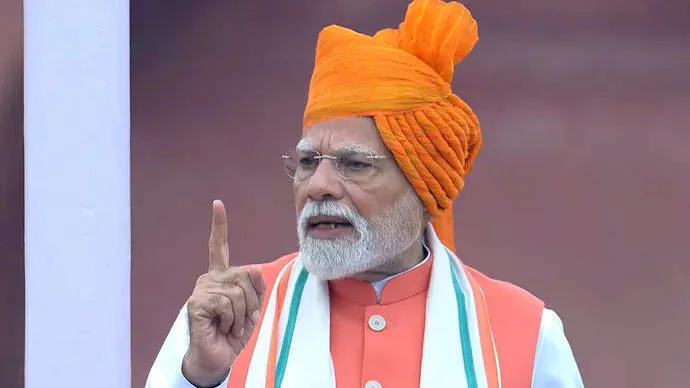

The announcements made by Prime Minister Narendra Modi in his Independence Day speech from the Red Fort bring new hope and optimism to the people of India. One of the key declarations was a major reform in the Goods and Services Tax (GST) by Diwali, aimed at reducing the tax burden on essential goods. The decision came from the realisation that as the country grows, the cost of living is also rising. The GST reform aims to ease the tax burden on common citizens as well as small, micro, and medium enterprises. Describing it as a “big surprise” to be given as a Diwali gift, he hinted at major relief measures. This statement is particularly significant as it comes ahead of the GST Council meeting on September 9, chaired by Finance Minister Nirmala Sitharaman. Currently, GST has tax slabs of 5%, 12%, 18%, and 28%. The Prime Minister’s Office had earlier approved removing the 12% slab. Modi’s remarks also suggested that several other comprehensive changes to the GST structure could be on the way.
In the past, rising air travel costs affected only the wealthy. Today, that is no longer the case. Many individuals from ordinary families now travel abroad, mainly for work and education. If GST on air travel and hotel room rents is reduced from 12% to 5%, it would bring significant relief to the public. A large part of India’s import expenses is currently spent on buying crude oil. Modi said that jet engines will soon be manufactured within India. Raw materials for solar panels and semiconductors used in electric vehicles will also be produced domestically, reducing dependence on other countries. Indian-made chips will be launched as well. He added that India will work to reduce reliance on the US dollar and the British pound. As part of cutting import costs, a project called “Samudra Manthan” will be launched to boost oil and gas exploration within the country.
The Prime Minister, who described the Indus Waters Treaty as unfair and one-sided, made a veiled reference to Pakistan by stating, “Water and blood cannot flow together.” He said that India’s water rightfully belongs to its farmers, and when the farmers of our country are in need, it cannot be given to an enemy nation. Modi affirmed that he would stand like a wall against any policy that harms the interests of farmers. He pointed out that India ranks first in the world in the production of milk, fruits, and hemp, and second in the production of fish, rice, wheat, and vegetables. Agricultural exports have reached Rs 4 lakh crore. The Prime Minister stressed that he will never abandon the farmers of the nation.
The Prime Minister also announced the creation of 3.5 crore new jobs, offering hope to the youth. He stressed that the true benefits of development are felt in every household when young people secure well-paying jobs, as their success lifts entire families. To safeguard India’s skies, the Prime Minister announced Mission Sudarshan Chakra, similar to Israel’s Iron Dome. Within the next ten years, this project aims to establish a precise air defence shield. The system will not only neutralise enemy attacks but also deliver multiple retaliatory strikes. These key announcements made by Prime Minister Modi on India's 79th Independence Day will give the nation a new sense of direction.